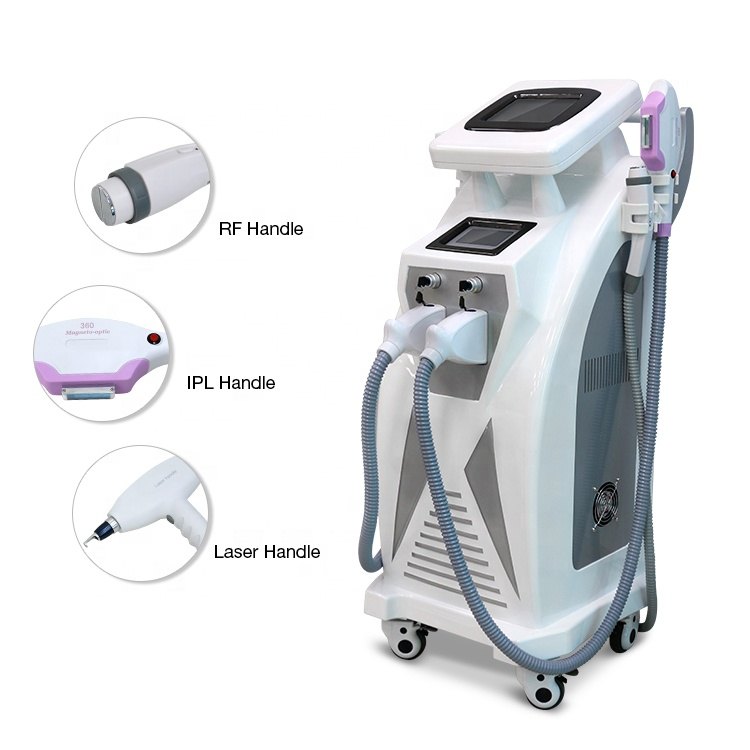Acne-prone skin requires special attention when it comes to choosing skincare products, including sunscreen. While sunscreen is essential for protecting the skin from harmful UV rays, certain ingredients commonly found in sunscreens can exacerbate acne breakouts. Understanding what to look for in a sunscreen can help individuals with acne-prone skin maintain sun protection without worsening their skin condition.
Look for Non-Comedogenic Formulas:
When shopping for sunscreen, one of the key considerations for individuals with acne-prone skin is to look for non-comedogenic formulas. Non-comedogenic sunscreens are specifically formulated to minimize the risk of clogging pores and causing acne breakouts. These products undergo testing to ensure that they are less likely to block pores or contribute to the formation of comedones, which are the precursor to acne lesions.
Choosing a sunscreen labeled as non-comedogenic provides assurance that the product has been designed with acne-prone skin in mind. These formulations typically contain ingredients that are less likely to aggravate acne, such as lightweight moisturizers and pore-friendly UV filters.
Non-comedogenic sunscreens are available in a variety of formulations, including lotions, creams, gels, and sprays, making it easier for individuals to find a product that suits their preferences and skin type. It’s important to note that even though a sunscreen is labeled as non-comedogenic, it may still contain ingredients that could potentially trigger acne breakouts in some individuals. Therefore, it’s essential to check the ingredients list and perform a patch test before using the product on the entire face, especially for those with sensitive or reactive skin.
By choosing non-comedogenic sunscreens, individuals with acne-prone skin can enjoy the benefits of sun protection without worrying about exacerbating their skin condition. Additionally, incorporating sunscreen into their daily skincare routine can help protect their skin from sun damage and premature aging, promoting healthier and clearer skin over time.
Choose Oil-Free or Lightweight Formulations:
When selecting sunscreen for acne-prone skin, it’s crucial to opt for oil-free or lightweight formulations. These sunscreens are specifically designed to provide effective sun protection without exacerbating oiliness or clogging pores, making them ideal for individuals prone to acne breakouts.
Oil-free sunscreens are formulated without added oils, making them less likely to contribute to excess oiliness on the skin. By choosing an oil-free sunscreen, individuals can reduce the risk of pore blockages and acne flare-ups associated with oily skin.
Additionally, lightweight sunscreens offer a comfortable and breathable feel on the skin, unlike heavier formulations that may leave a greasy or sticky residue. Lightweight sunscreens are quickly absorbed into the skin, providing a matte or non-greasy finish that is suitable for everyday wear.
By selecting oil-free or lightweight sunscreens, individuals with acne-prone skin can effectively protect their skin from the sun’s harmful UV rays without experiencing the heaviness or greasiness often associated with traditional sunscreens. These formulations help maintain a balanced and comfortable complexion while minimizing the risk of acne breakouts, allowing individuals to enjoy sun protection without compromising their skincare routine.
Opt for Physical or Mineral Sunscreens:
Opting for physical or mineral sunscreens is a smart choice for individuals with acne-prone skin. These sunscreens contain active ingredients such as zinc oxide or titanium dioxide, which work by forming a protective barrier on the surface of the skin to physically block UV rays. Unlike chemical sunscreens, which absorb UV radiation and convert it into heat, physical sunscreens reflect UV rays away from the skin, making them less likely to cause irritation or trigger acne breakouts.
Physical or mineral sunscreens are particularly beneficial for acne-prone skin because they are non-comedogenic and less likely to clog pores. Since the active ingredients sit on the surface of the skin rather than being absorbed, they are less likely to interact with the skin’s natural oils and exacerbate acne.
Furthermore, physical sunscreens are often gentler on sensitive or reactive skin compared to chemical sunscreens, which can contain ingredients that may irritate or exacerbate acne breakouts. Individuals with acne-prone skin may find that physical sunscreens cause less irritation and are better tolerated overall.
By choosing physical or mineral sunscreens, individuals with acne-prone skin can effectively protect their skin from the sun’s harmful UV rays without worrying about potential irritation or acne flare-ups. These sunscreens provide reliable sun protection while being gentle and non-comedogenic, making them an excellent choice for daily use.
Avoid Fragrances and Harsh Chemicals:
It’s crucial for individuals with acne-prone skin to avoid fragrances and harsh chemicals in their skincare products, including sunscreen. Fragrances and certain chemical ingredients commonly found in skincare products can irritate sensitive skin and exacerbate acne breakouts. Therefore, opting for unscented or fragrance-free sunscreens formulated with gentle ingredients is essential to minimize the risk of irritation and acne flare-ups.
Fragrances, whether natural or synthetic, are a common cause of skin irritation and allergic reactions. They can disrupt the skin’s natural barrier function, leading to inflammation and increased sensitivity. For individuals with acne-prone skin, fragrance-free products are preferable to reduce the likelihood of triggering acne breakouts and other adverse reactions.
In addition to fragrances, harsh chemicals such as parabens, sulfates, and synthetic dyes can also irritate sensitive skin and exacerbate acne. These ingredients may disrupt the skin’s natural balance and contribute to inflammation, pore congestion, and acne flare-ups. Therefore, it’s essential to choose sunscreens formulated with gentle, non-irritating ingredients to minimize the risk of irritation and maintain skin health.
Check for Matte or Non-Greasy Finish:
Checking for a matte or non-greasy finish is crucial when selecting sunscreen for acne-prone skin. Sunscreens with these characteristics are ideal as they help control shine and reduce the appearance of oiliness, which is particularly beneficial for individuals with acne-prone skin.
A matte finish sunscreen absorbs excess oil and sebum, providing a shine-free appearance without leaving a greasy residue on the skin’s surface. This can help prevent pores from becoming clogged and minimize the risk of acne breakouts.
Additionally, non-greasy sunscreens are lightweight and comfortable to wear, making them suitable for daily use. They provide effective sun protection without leaving a heavy or sticky feeling on the skin, which is important for maintaining comfort throughout the day.
When choosing sunscreen for acne-prone skin, look for formulations specifically designed for oily or acne-prone skin types. These sunscreens are often formulated with ingredients that help regulate oil production and mattify the skin, providing long-lasting shine control.
By selecting sunscreens with a matte or non-greasy finish, individuals with acne-prone skin can effectively protect their skin from the sun’s harmful UV rays while minimizing the risk of shine and oiliness. These formulations help maintain a matte, shine-free complexion throughout the day, promoting clearer and healthier-looking skin.
Consider Added Ingredients for Acne Treatment:
Considering sunscreens with added ingredients for acne treatment can be beneficial for individuals with acne-prone skin. Some sunscreens are formulated with ingredients such as niacinamide or antioxidants, which offer additional skincare benefits beyond sun protection. These ingredients can help improve the overall health of the skin and reduce inflammation associated with acne, making them valuable additions to a skincare routine for acne-prone individuals.
Niacinamide, also known as vitamin B3, is a multifunctional ingredient known for its anti-inflammatory and sebum-regulating properties. It helps to calm redness and irritation, reduce the appearance of blemishes, and regulate oil production in the skin. Incorporating niacinamide into a sunscreen can help address acne-related concerns while providing essential sun protection.
Antioxidants, such as vitamin C, vitamin E, and green tea extract, help neutralize free radicals and protect the skin from environmental damage. They also promote skin repair and regeneration, resulting in a healthier and more resilient complexion. Sunscreens enriched with antioxidants can help combat inflammation and oxidative stress associated with acne, supporting overall skin health and reducing the risk of acne flare-ups.
When selecting sunscreen for acne-prone skin, consider choosing products that contain these beneficial ingredients. Look for sunscreens labeled as “acne-prone” or “acne-fighting” that specifically mention the inclusion of niacinamide or antioxidants in their formulations. These sunscreens offer added skincare benefits beyond sun protection, helping to improve the appearance and condition of acne-prone skin.
Incorporating sunscreens with added ingredients for acne treatment into a daily skincare routine can help individuals with acne-prone skin achieve clearer, healthier-looking skin. By addressing acne-related concerns while providing essential sun protection, these sunscreens offer comprehensive care for acne-prone skin.
Test the Product on a Small Patch of Skin:
Before applying a new sunscreen to your entire face, it’s essential to conduct a patch test on a small area of skin to check for any adverse reactions or irritation. This simple step can help prevent potential breakouts or allergic reactions and ensure that the sunscreen is suitable for your skin.
To perform a patch test:
- Choose a small, inconspicuous area of skin, such as the inner forearm or behind the ear.
- Cleanse the chosen area with a gentle cleanser and pat it dry.
- Apply a small amount of the sunscreen to the patch test area, following the product’s instructions for application.
- Allow the sunscreen to dry and absorb into the skin.
- Leave the patch test area undisturbed for 24 to 48 hours. Avoid washing or touching the area during this time.
- Monitor the patch test area for any signs of irritation, such as redness, itching, burning, or swelling.
If you experience any adverse reactions during the patch test, such as irritation or allergic reactions, discontinue use of the sunscreen immediately and wash the area thoroughly with water. If the reaction persists or worsens, seek medical advice from a dermatologist or healthcare professional.
If the patch test results are negative, and you do not experience any adverse reactions, you can proceed to use the sunscreen on your face as directed. However, it’s essential to continue monitoring your skin for any signs of irritation or sensitivity, especially during the initial days of use.
By conducting a patch test before applying a new sunscreen to your entire face, you can identify any potential issues and ensure that the product is safe and suitable for your skin. This precautionary measure helps minimize the risk of adverse reactions and allows you to enjoy the benefits of sun protection without compromising your skin’s health.
Conclusion:
Choosing the right sunscreen is crucial for individuals with acne-prone skin to protect against sun damage without exacerbating acne breakouts. By selecting non-comedogenic, oil-free, and lightweight formulations, avoiding fragrances and harsh chemicals, and opting for physical or mineral sunscreens with added acne-fighting ingredients, individuals can maintain sun protection while keeping their skin clear and healthy. It’s essential to consult with a dermatologist for personalized recommendations based on individual skin concerns and sensitivities.










